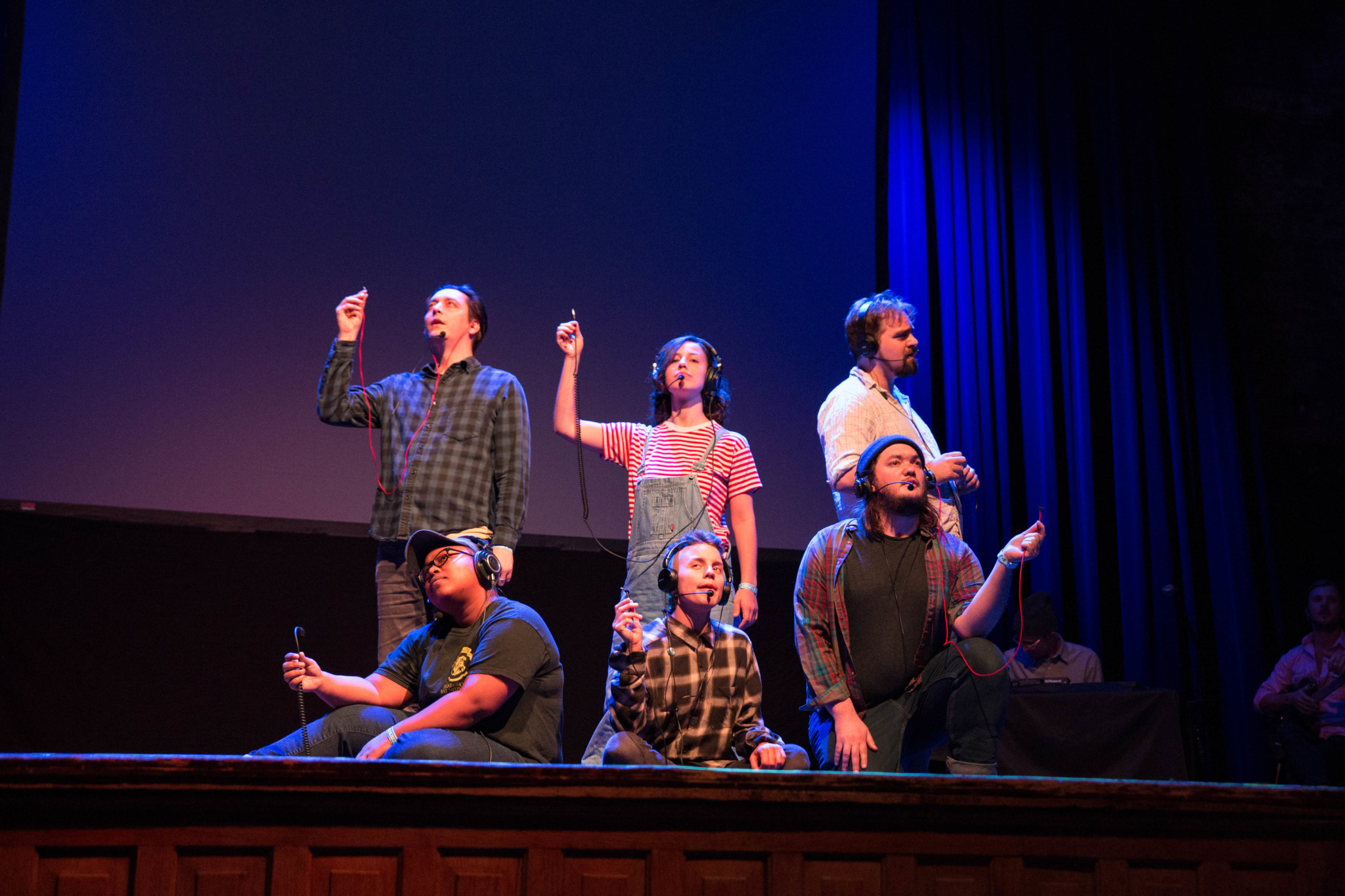On Thursday, November 9, the Third Coast International Audio Festival (TCIAF) presented Re:sound LIVE! curated by The Fest, was live at Thalia Hall.
TCIAF is the “Sundance Film Festival” of the audio world. It holds an annual conference, bringing over 800 producers to a weekend of panels, talks, and award presentations. It also puts out a weekly, hour long radio show, called Re:sound.
As the name would suggest, TCIAF is based out of Chicago. The nonprofit organization started as a project of WBEZ over a decade ago, and eventually broke off to become its own entity in 2009.
Re:sound’s customary introduction, enunciated by host, Gwen Macsai, explains the show well: “Re:sound is a remix. Of music, documentaries, found sound, sound bites, and beautiful stories we find all over the world. We listen to everything we can get our ears on then bring you the best of what we hear, each week.”
This live show was only the second or third live version that Re:sound has done, depending on if you count “Re:sound deconstruction” by Katie Mingle (now of 99% Invisible) in 2015 at The Hideout, according to Artistic Associate at TCIAF Maya Goldberg-Safir. This year’s live Re:sound show was part of “The Fest,” a two-week-long curated series overlapping with the Third Coast Conference itself. It brought hot audio programs like the Center for Investigative Reporting and PRX’s Reveal, Panoply’s Why Oh Why, Radiotopia’s Love + Radio, NPR’s Code Switch, and independent podcasts like Longform to Chicago, made even hotter with one-off guests like Chicago’s Eve Ewing and comedian Hari Kondabolu.
Re:sound LIVE! had a strong showing of performances. Gwen Macsai, who has only had her voice recognized in the grocery store “two or three times…it’s really weird,” shone brightly as a host. She delivered with panache.
Each episode of Re:sound is organized around a theme, or an “anchor piece,” as Macsai put it. For this show the anchor piece was on Macsai’s own experience as a performative medical patient, who bares it all for doctors in training. The piece employed over eight different euphemisms for her “cooter,” and set the stage for the theme “Things I’ve Never Shared Before.”
Interstitial plays by the Neo-Futurists tangoed with the concepts of audio, voice, and words. There were a few times when the Neos seemed to forget their lines, but I will give them the benefit of their experimental pedigree and consider it an artistic choice.
Chicago-based Colombian Univision reporter Adriana Cardona-Maguigad gave an energetic performance with a nuanced use of sound clips from her life, telling the story of coming to the United States as a high schooler to learn English. Her writing was strong and her persona was affable; it would be a treat to hear more audio pieces from her in the future.
Phoebe Judge, of Radiotopia’s Criminal, dug deep into her own standoffish charm and wove anecdotes involving her time as the lone young reporter covering the Mississippi Gulf for public radio, where she “only had two friends” and “lived in a house next to the train tracks.” Her piece had a curmudgeonly wisdom that compared favorably to David Sedaris’s personal essays for radio.
At around the hour mark of the show, there was a fourth wall–breaking piece that had strangers looking into one another’s eyes, with the house lights up, and reading from a script that was in the program. I personally had drunk too much caffeine to make eye contact with anyone, so I sat quietly with my eyes closed, but the crowded house of fans and fresh-eyed producers in town for the festival starting the next morning seemed to love it.
The final piece of the night, “The Return of the Purple Hotel,” featured the return of Gwen Macsai, this time, presenting in tandem with Roman Mars (of 99% Invisible). This sprawling piece was a redux of a story collaboration that Mars and Macsai had done for 99% Invisible in 2012. Macsai wove the story of her architect father, John Macsai, and his controversial “Purple Hotel” that once stood at 4500 West Touhy Avenue. This version of the story was colored by recent grief, as John Macsai passed away this past summer. The story swooped everywhere: from Michael Jordan, to a full eulogy, to a wartime Holocaust connection between Mars and Macsai’s grandfathers. It was effective—and intimate.
Live radio shows of this kind are a new trend of the last five years, according to Macsai. “I think Ira [Glass, of This American Life] started it as usual, as he starts everything,” she said, humbly, yet on a first-name basis with one of America’s most well-known radio figures.
“Everyone is doing live shows because it’s just great publicity, and it’s fun to do,” she said. “It’s good all the way around.”
Support community journalism by donating to South Side Weekly

